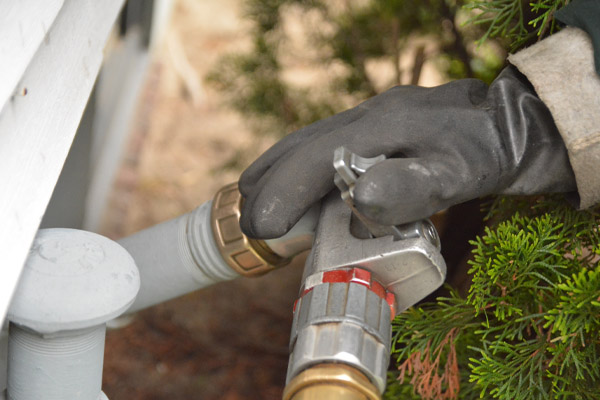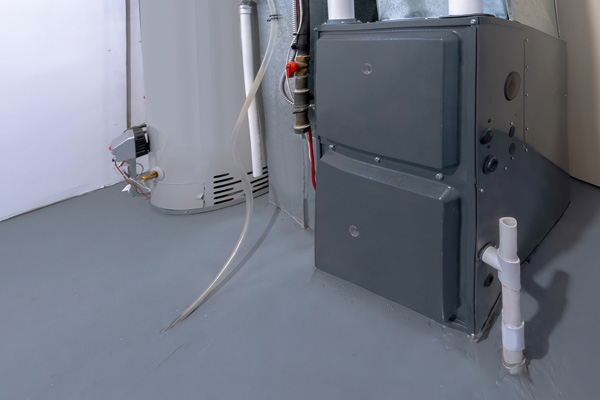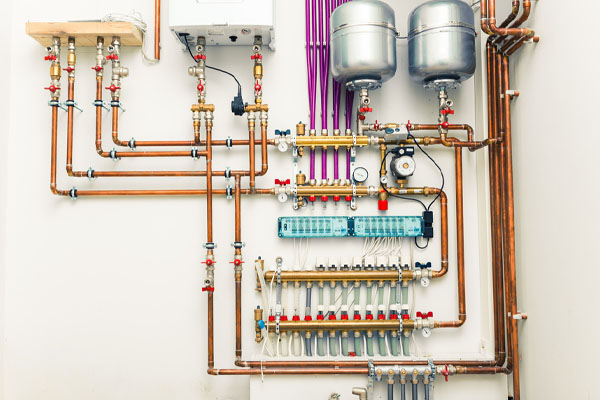
Oil heating systems are not only environmentally friendly but also have a longer lifespan compared to other fuel systems. They offer excellent cost-effectiveness and high efficiency, particularly with newer models featuring impressive AFUE ratings. In this guide, we answer the question, “How does an oil heating system work?”.
First, we will address common misconceptions surrounding oil heating systems. By debunking these misconceptions, you will gain a better understanding of the benefits and advantages that come with using a system that is powered by heating oil in your home.
Common Myths About Oil Heating Systems
Contents
- Environmental Impact: Contrary to the misconception, heating oil burns cleanly and meets the air pollution standards set by the EPA. Thanks to technological advancements, oil heating systems have become an environmentally friendly option.
- Cost-Effectiveness: Investing in a heating oil system is a wise financial decision. These systems are more affordable and have a longer lifespan compared to other heating systems. You can save up to 5% of your fuel costs.
- Durability: Heating oil systems outlast propane and natural gas systems by a significant margin. They provide reliable heating for an extended period. They have an average lifespan of around 30 years.
- Safety: Heating oil is safe when stored properly, similar to diesel fuel. When handled and stored correctly, there is no risk of explosion or any cause for concern regarding heating oil safety.
By dispelling these misconceptions, it is evident that heating oil systems offer a clean, cost-effective, durable, and safe heating solution for your home.
Related Article: Home Heating Oil: Top Tips For Summer
How An Oil Heating System Works

Heating oil systems operate in three main ways:
- Through vents
- Radiators
- Baseboards
Then the thermostat detects a drop in temperature below a set level; the heater receives a signal to start warming up the home.
The heating oil moves from the tank to the burner through a pump. It transforms into a warm mist that mixes with the air. This fuel and air mixture enters the burner, creating flames in the combustion chamber.
Depending on the type of heating system you have, the oil either heats the air or water that circulates through your home. Air systems, known as central forced-air systems, use ducts and vents to distribute the heated air throughout the house. Depending on the configuration, water or hydronic heating systems heat water and send it to radiators or baseboards.
There are two main types of heating oil systems:
- Furnaces
- Boilers
While they have some differences, both types become more efficient with newer models. The advancement of HVAC technology has focused on producing energy-efficient heating systems.
Related Article: Oil Tank Condensation: What You Need To Know
Oil-Heat Furnaces

Newer condensing furnaces are superior to older atmospheric models in terms of efficiency and performance. These advanced furnaces use a fan to direct the exhaust air through a heat exchanger.
When oil is used to heat a furnace, the most efficient option is a condensing furnace. Unlike traditional furnaces that immediately vent the hot exhaust, condensing furnaces allow for the condensing of gases first. This process enables the condensation of water vapor with the exhaust. It is then directed outside through a plastic pipe located on the side of the furnace. As a result, less heat is lost to the outside environment, maximizing energy efficiency.
Related Article: Wi-Fi Thermostats for Oil Heat
Oil-Fired Boilers

Hydronic boilers are designed to heat water. It circulates through the house, providing heat to radiators or baseboards. The cooled water returns to the boiler to be reheated, creating a continuous cycle of warmth.
In contrast, steam boilers operate by boiling water to produce steam. It then travels through the system and heats radiators to warm the space.
The primary distinction between furnaces and boilers lies in their heating methods. Furnaces use air to heat the home, while boilers use water. In both cases, the oil is used to initiate combustion in the chamber, creating flames. The resulting heat is transferred to either the gases or the water flowing through the heat exchanger, enabling the distribution of warmth throughout the system.
Related Article: What Do Heating Oil Additives Do?
Oil Heating System Maintenance
Proper maintenance is essential for an oil heating system’s efficient and reliable operation. Before the eating season begins, clean the thermostat. It plays a crucial role in regulating the temperature in your home.
Regular upkeep of the blower and stack components is necessary. These parts monitor the burner and remove any particles or debris that can impede the heater’s function.
While there are some maintenance tasks that homeowners can perform, it is better to seek professional help. HVAC professionals can make sure that the system is in optimal condition before winter arrives. Schedule HVAC services or maintenance for comprehensive cleaning and inspection. This can improve efficiency, reduce heating costs, enhance air quality, and increase overall comfort.
Related Article: New Efficient Oil Heating Systems Increase Comfort & Decrease Fuel
Environmental Benefits Of Using Oil Heating Systems
Oil heating systems provide clean heat with minimal levels of smoke and combustion debris. According to the EPA, oil burners are recognized as one of the cleanest combustion sources.
Adequately maintained oil tanks pose no threat to health or the environment and can last for decades. Heating oil is non-toxic, free from carcinogens, and biodegradable.
Investing in an oil heating system not only offers cost-effectiveness and durability but also contributes to environmental benefits. These systems release minimal smoke and debris into the air, reducing their environmental impact.
Related Article: The Best Ways To Prevent Running Out Of Heating Fuel This Winter
Conclusion
If you are considering a new heating system, you now understand the advantages and inner workings of an oil heating system. Modern systems offer environmental benefits and long-term cost savings.
Before the winter season, have your heating system inspected by an HVAC professional. This ensures its proper function and reliability during the colder months. By scheduling a cleaning and maintenance service, you can have the peace of mind knowing that it will work efficiently when you need it the most. Do not hesitate to schedule an appointment with a professional HVAC contractor today!
Related Article: What Size Oil Tank Do I Need For My Home?
Call PFO Heating & Air Conditioning For Reliable Heating Oil Deliveries

When you’re searching for a reputable heating oil delivery company, you can contact PFO Heating & Air Conditioning.
We offer the best home heating oil delivery and the most reasonable heating oil prices in the area. We have different delivery plans and financing options so you can customize your oil deliveries to meet your needs. Also, our team of expert technicians provides HVAC services to help improve the performance and efficiency of your HVAC equipment. Our priority is your satisfaction, so we back all of our work with a guarantee. Give us a call today!
Call PFO Heating & Air Conditioning today and learn more about the services we offer. We will be happy to answer all your questions and concerns. Call now!
Click here to contact us now or call us at (800) 253-9001 to find out more! Click the link to view our service area.



